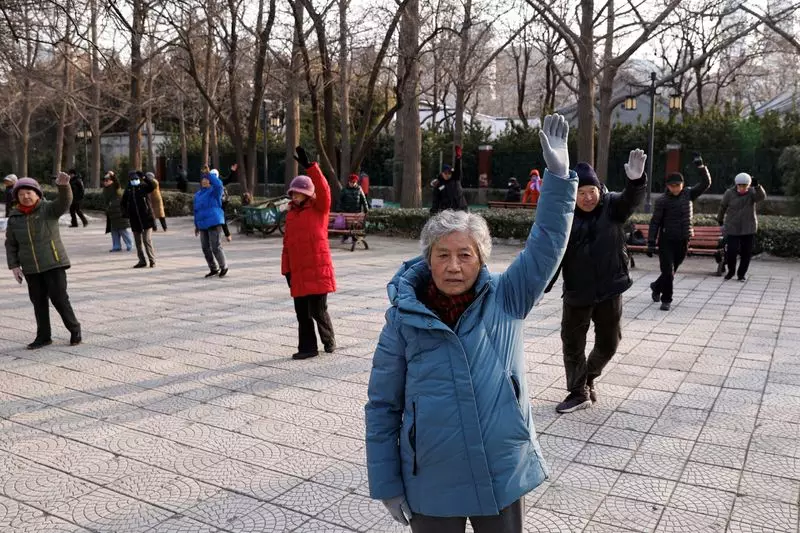China’s policymakers are currently in the process of assessing an official plan to delay the country’s retirement age, which is among the lowest in the world. This move is seen as a key step towards addressing the issue of a shrinking working population. The discussion took place during the 11th meeting of China’s Standing Committee in Beijing, highlighting the urgency of the situation.
With China’s retirement age currently set at 60 for men and as low as 50 for women working in factories, the country is facing significant challenges. Life expectancy in China has been on the rise, reaching 78 years by 2021 and projected to exceed 80 years by 2050. This demographic shift has led to a decrease in the working-age population, putting pressure on the pension system.
China’s population has been falling for the past two years, a trend that is expected to continue for decades. This decline, coupled with an increase in life expectancy, has resulted in a rapidly aging population. National health authorities predict that the number of individuals aged 60 and older will increase from 280 million to over 400 million by 2035. This demographic shift has significant implications for the country’s economy and social welfare system.
The current pension system in China faces significant challenges, with eleven provincial-level jurisdictions running pension budget deficits. This puts further strain on an already struggling system. The Chinese Academy of Sciences has warned that the pension system could run out of money by 2035 if significant reforms are not implemented.
In light of these challenges, policymakers in China are considering gradually raising the retirement age to allow people to work longer. This move is aimed at alleviating pressure on the pension system and ensuring its sustainability in the long run. With the demographic landscape of China changing rapidly, it is imperative that proactive steps are taken to address the issue of a shrinking working population.
The urgency of addressing China’s shrinking working population cannot be understated. With demographic shifts and increasing life expectancy, the country faces significant challenges in sustaining its pension system. By implementing reforms to raise the retirement age and adapt to the changing population dynamics, China can work towards ensuring the long-term viability of its social welfare system.

